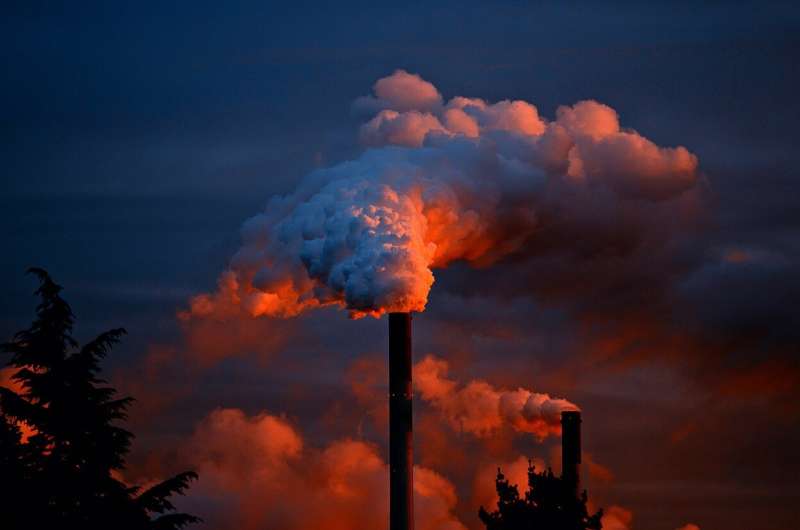Credit: CC0 Public Domain
Efforts by governments to tackle air pollution can reduce people's mental wellbeing by not meeting citizens' expectations, new research says.
Three researchers analyzed survey data on 25,000 people in 20 European countries, including the UK, comparing their self-reported mental wellbeing, perception of air pollution in their neighborhood, levels of sulfur dioxide pollution in the air, and their government's actions to tackle environmental problems.
They found that in countries that are more dedicated to tackling environmental problems, such as the UK, Sweden and Germany, perceived air pollution reduced people's mental wellbeing compared to other countries. In Italy, Belgium and Portugal, air pollution was worse, but people were less affected by it as they might be less aware of the problem.
On a scale of 0 to 10 for mental wellbeing, people in countries with strong environmental policies, taxes on pollution, and better organization and research, are rated 7.5 percent lower than people in countries with weaker ones. This finding came after the researchers adjusted raw data to exclude factors such as the educational level of those in the survey, in order to study perception of air pollution in isolation.
The researchers are: Dr. Paola Signoretta, Visiting Fellow at Loughborough University, UK, Dr. Veerle Buffel, Catholic University of Antwerp, Belgium, and Professor Piet Bracke, Ghent University, Belgium.
Dr. Signoretta told the European Sociological Association conference in Manchester today [Thursday 22 August] that it might be assumed that "that individuals who live in more advanced ecological states are better environmentally educated, more aware of environmental issues and might feel more protected from environmental hazards because of the environmental actions undertaken by their governments."
However, the researchers found that "in those countries which gave a higher priority to tackling environmental issues, citizens might be more aware of the negative consequences of environmental problems and that their higher awareness might bring them to be more vulnerable, in terms of mental health, to major air pollution problems, despite their country being a good environmental state.
"So the initial steps of governments to clean up the environment will probably not immediately translate into better personal wellbeing. Instead, these policies could raise awareness and resentment and contribute to worse mental wellbeing.
"Citizens' expectations may rise when governments start cleaning up their act and the environment, with as a result increasing feeling of resentment about any barriers to a more bountiful ecological future."
Overall no significant association between objective air pollution and mental wellbeing was found.
Dr. Signoretta said that tackling air pollution was becoming more important for governments. "One of the current environmental and public health emergencies is the risk posed by air pollution to physical human health, as for instance the negative association between air pollution and respiratory and cardiovascular diseases documents. Increasingly, the effect of air pollution on subjective wellbeing and mental health is also under scrutiny."
More information: Paola E. Signoretta et al. Mental wellbeing, air pollution and the ecological state, Health & Place (2019). DOI: 10.1016/j.healthplace.2019.03.003
Journal information: Health & Place
Provided by European Sociological Association























